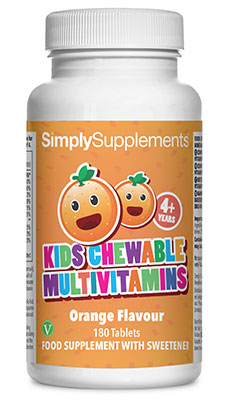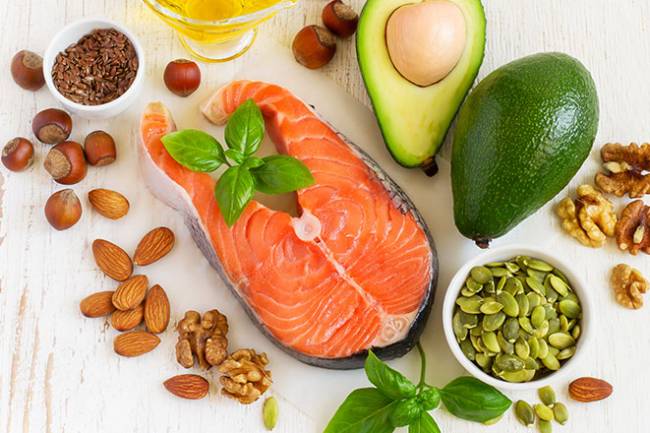In this article, we will look at the current advice that pertains to the optimisation of children's health through nutrition, and provide a summary of the functions and food sources of the micronutrients that they need to thrive.
We will also examine the role of multivitamin supplements, and discuss whether or not they are a suitable adjunct to a child's healthy diet.
The Importance of Micronutrients
Providing a child with good nutrition from birth has a lifelong impact on their physical, social and mental development. In the UK, the increasing prevalence of childhood obesity has prompted a great deal of focus to be placed on maintaining an appropriate intake of calories. However, when it comes to ensuring that a child's nutrition is apt to meet their requirements, the management of their energy balance is only part of the picture.
An adequate intake of micronutrients is also essential for the healthy growth of children, and the importance of vitamins and minerals should not be overlooked.
Maternal Nutrition
Good nutrition passes from one generation to the next, and the nutritional future of a child begins with the nutritional status of the mother even prior to conception. A sufficient intake of nutrients before and during pregnancy is vital for the proper development of the foetus.
According to UNICEF, the damage that is done because of inadequate maternal nutrition stores is irreversible, and because pregnancy is such a sensitive life-stage, anyone who is planning on starting a family should consult an appropriately qualified professional for advice on what to eat.
The Early Years
The first three years of a child's life represent a period of rapid growth and an opportunity to lay down a firm nutritional and immunological base. Breastmilk contains nutrients, micronutrients, and other beneficial factors that are found exclusively in the mother's milk. It is the ultimate food for the first six months of an infant's life and is thought to help boost immunity. After the age of six months, the baby can continue to be breastfed alongside the introduction of family foods.
A new mother's health visitor will be able to provide advice on this weaning process.
School Age
As a child reaches the age when it is time to start school, they are growing at an impressive rate and becoming increasingly active. Pound for pound, children have a higher requirement for certain nutrients than adults, and it essential that they are provided with the nutrition they need for proper growth.
After the age of five, children should eat a diet that is consistent with the Eatwell guide, which is the approach to healthy eating recommended by the government. The main principles of the Eatwell plate can be summarised as follows:
-
Aim to eat a minimum of 5 portions of fruit and vegetables per day
-
Base each meal on a starchy food, such as potatoes, rice, pasta or bread (try to choose mainly whole grain versions)
-
Include some dairy products or dairy alternatives
-
Include protein foods such as fish, meat, pulses and beans
-
Eat fats sparingly (choose mainly polyunsaturated oils)
-
Aim to drink 6 to 8 cups or glasses of fluid per day
It is necessary to incorporate the right kind of foods into the Eatwell model, in order to ensure a satisfactory intake of the micronutrients that children need. Below is an overview of the micronutrients that are of particular importance to the growth and development of children, together with some examples of the foods that provide them:
Vitamin A
Vitamin A is needed for the development and maintenance of healthy skin, eyes and immune function. Foods that are rich sources of vitamin A include yellow and red vegetables, milk, cheese and eggs.
Vitamin C
Vitamin C is primarily needed for the formation of healthy connective tissues. Good sources of vitamin C include oranges, kiwis, berries, tomatoes and broccoli.
Vitamin D
Vitamin D is needed for the development and maintenance of healthy bones, teeth, muscles, and immune function. The primary source of vitamin D is the sun, but it is also found in foods such as eggs and oily fish.
Iron
Iron is needed for the formation of healthy blood cells and has a role in transporting oxygen around the body. Good sources of iron for children include meat, dark green vegetables and fortified breakfast cereals.
Calcium
Calcium is needed for the growth, development and maintenance of healthy bones and teeth, and also has important roles in nerve and muscle function. Good sources of calcium include milk, yoghurt, cheese, and fortified soy and fruit drinks.
Zinc
Zinc is needed for healthy growth and development, and normal neurological and immune function. Good sources of zinc for children include beef, pork, chicken and yoghurt.
Do Children Need to Supplement with Micronutrients?
It is recommended that all children between the ages of six months and five years are given a supplement of vitamins A, C and D. After this, it is thought that the consumption of a suitably balanced diet alone is enough to provide a child with all the micronutrients they need. However, parents of fussy eaters often choose to continue giving their child a suitable multivitamin, in order to
safeguard against deficiencies.
A recent study published in April 2016 issue of Paediatric International highlights the efficacy of micronutrient supplementation in the context of a country where childhood nutritional deficiencies are common. It was found that supplementing schoolchildren with zinc and a multivitamin resulted in a significantly greater increase in height compared to the placebo. Researchers conducted a randomized controlled trial, in which 140 children were assigned to take either a multi-nutrient supplement or a placebo for a period of six months. At the end of the trial, the children who took the supplement were observed to have grown an average of 4.9cm, whereas the average growth of the children in the placebo group was only 3.6cm.
1. Unicef. “What is the role of nutrition?” URL: . [Accessed on 13th July 2016]
2. NHS Choices, 2015. “Your baby's first solid foods?” URL: . [Accessed on 13th July 2016]
3. British Nutrition Foundation. “Children” URL: . [Accessed on 13th July 2016]
4. NHS Choices, 2014. “Do I need supplements?” URL: . [Accessed on 13th July 2016]
5. Rerksuppaphol S, Rerksuppaphol L. Effect of zinc plus multivitamin supplementation on growth of school children. Paediatrics International. 2016, April.
Nicole
Nicole has been working as a researcher and writer in the health industry for over five years. An avid runner and foodie, Nicole writes about the highs and lows of trying to follow a balanced lifestyle and has a keen interest in the complex relationship between nutrition and disease prevention.


 Nicole
Nicole 
























